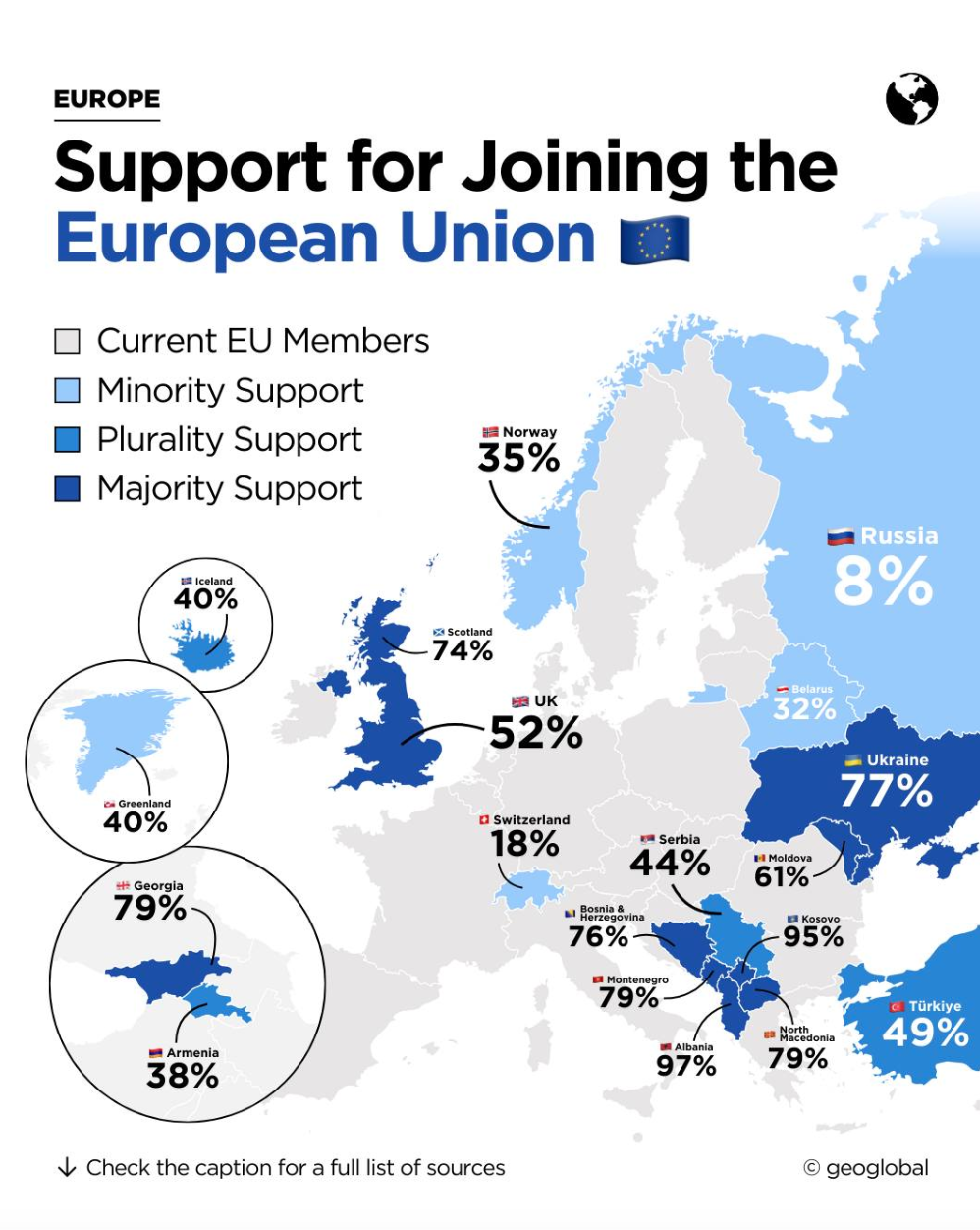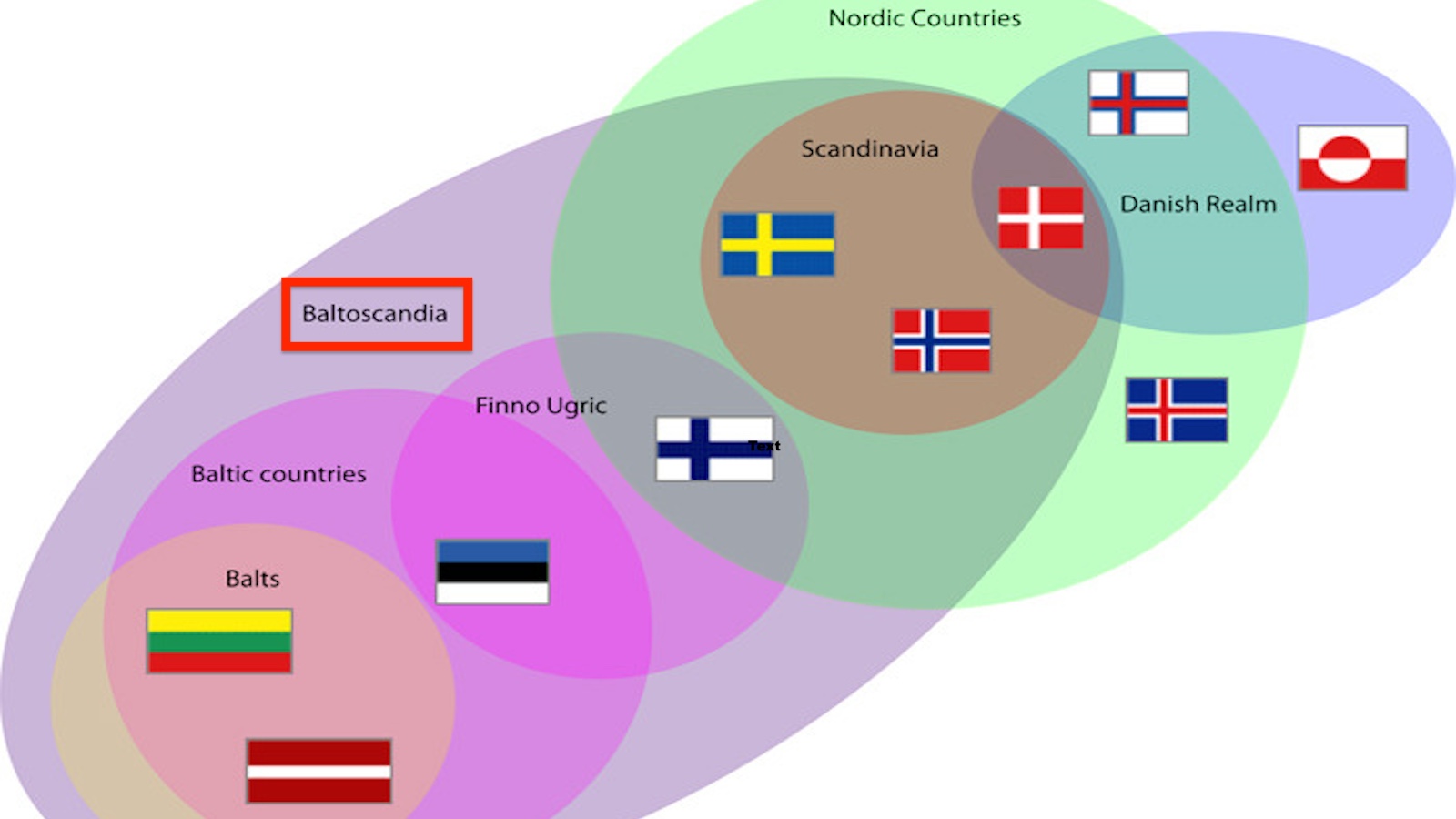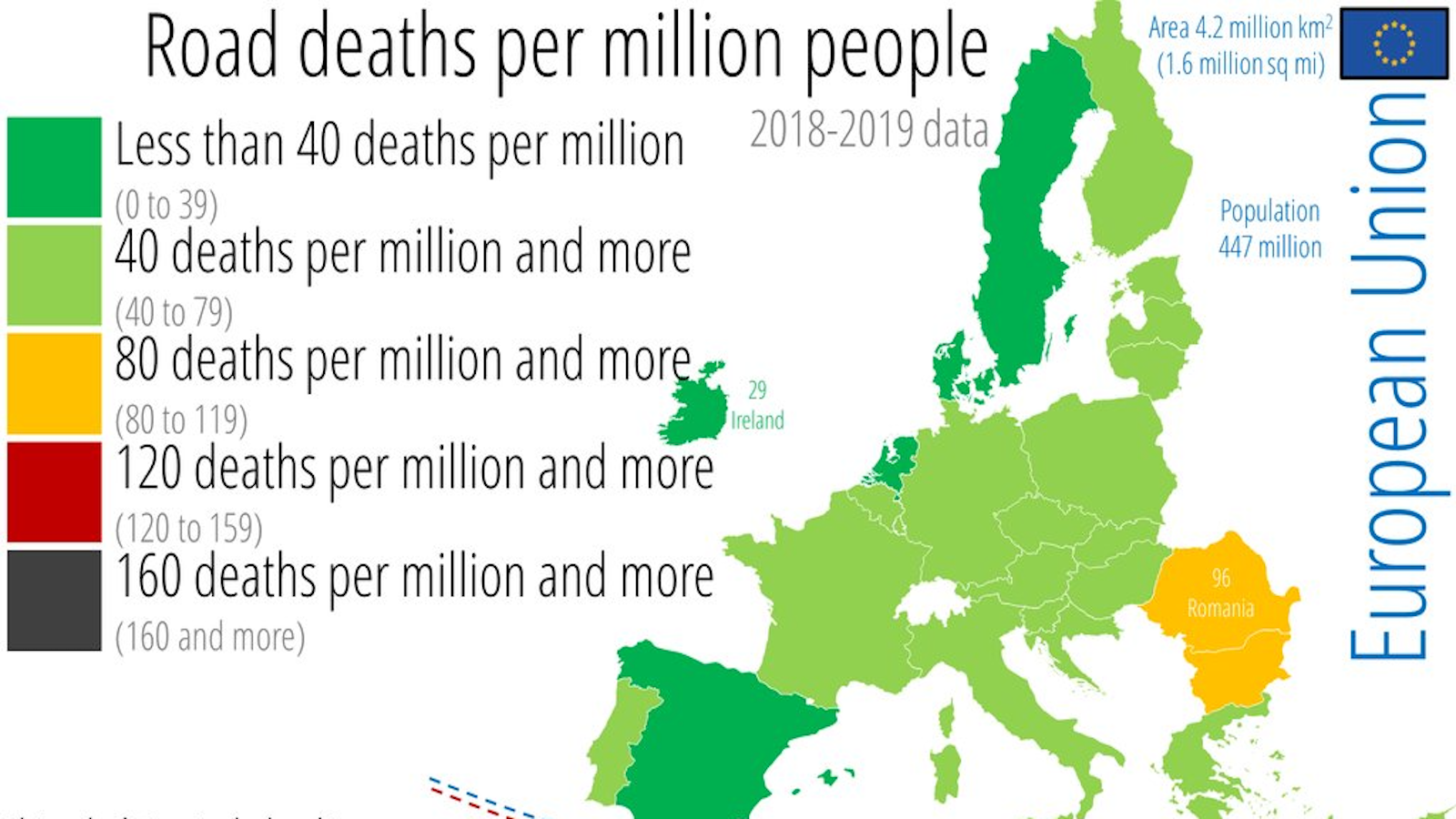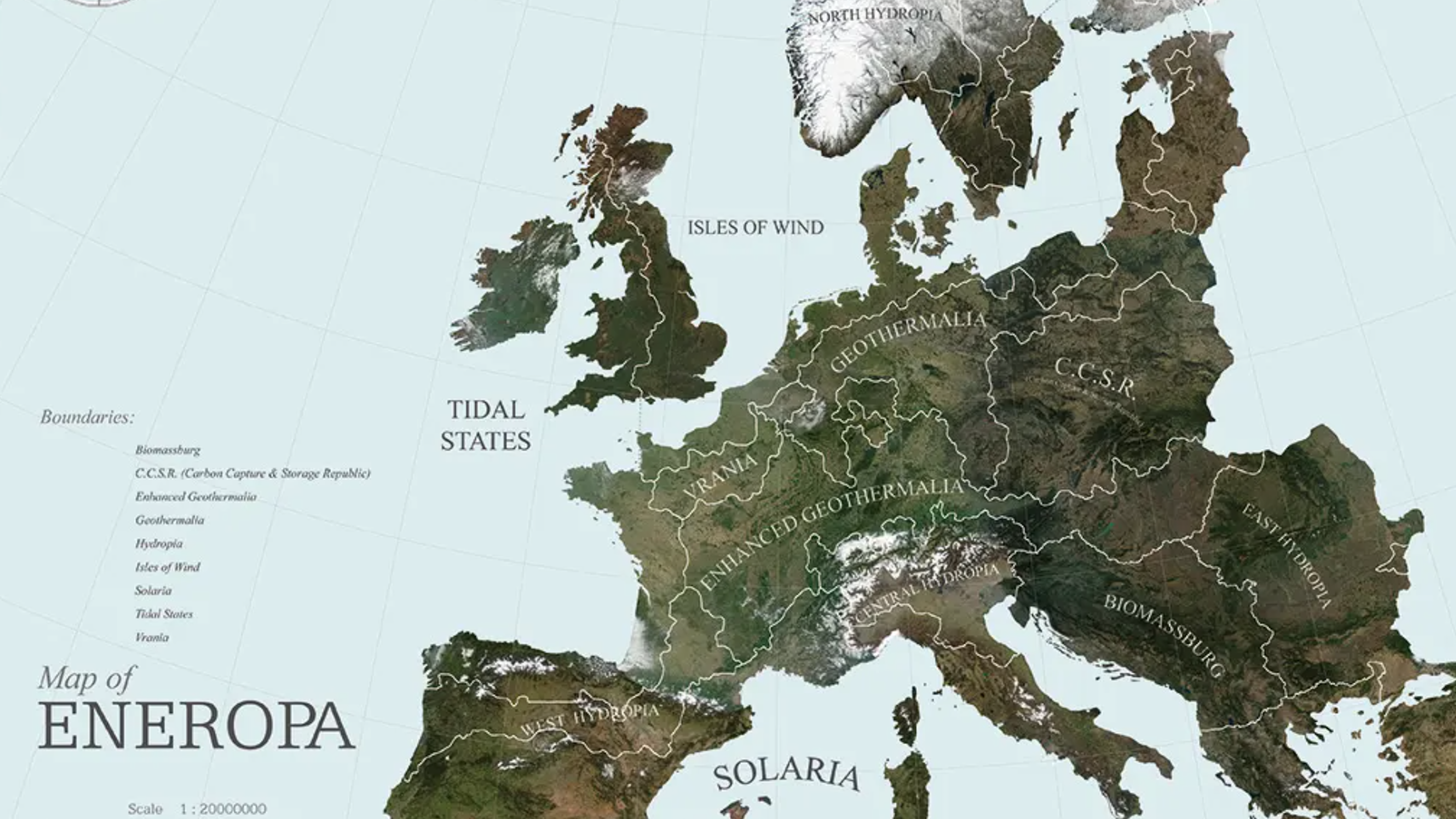A continental shift: EU membership grows in popularity (even in the UK)

- Brexit came at a time when distrust in the European Union was high across the continent.
- Today, the prospect of joining the EU is popular in many of its neighboring countries, including the UK.
- While some countries still avoid membership for a variety of reasons, sentiment has clearly shifted since 2016.
One of the more unexpected consequences of Brexit, the United Kingdom’s decision to leave the European Union following a 2016 referendum, is that it has made EU membership more popular.
The British exit from the EU was the high-water mark of a general distrust, even disgust, experienced by public opinions across many member states towards the bureaucracy in Brussels. When the UK voted to leave, there was much talk of other countries following its example. It even ushered in a slew of neologisms inspired by “Brexit,” such as “Quitaly,” “Swedone,” and “Czech-out.” (For more, check Strange Maps #822).
Brexit’s promise was that the UK, once unfettered by the restrictive rules and regulations imposed by the EU, would regain not just its full sovereignty but also its geopolitical standing and economic agility — as if it were an Asian tiger moored off the European continent. Bye-bye Brussels, hello to the “sunlit uplands” of Singapore-on-Thames.
It didn’t quite turn out that way. Brexit didn’t resolve political infighting between pro- and anti-Europeans in Britain. It further entrenched and exacerbated it. Meanwhile, frictionless trade and travel from the UK to Europe was abolished. Brexit has been described as “the only time in history a country has imposed trade sanctions on itself.” The economy, predictably, took a hit. By some accounts, the UK’s GDP is now 5% smaller than it would have been had the country remained in the EU.
All that trouble and strife has silenced the EU’s once-vocal opponents on the continent. As this map shows, support for joining the European Union in several of the EU’s direct and indirect neighbors is fairly widespread. Meanwhile, stalwarts of the Euroskeptic far right, such as Marine Le Pen in France, have toned down their previously boisterous opposition to EU membership, seeing that it is no longer the vote-winner it once was.

The tide has turned even in the UK. British support now stands at 52% — exactly the share of votes that approved Britain’s exit from the EU in the referendum. In 2016, Scotland voted to remain in the EU. That stance has only hardened: 74% of Scots now want to rejoin.
Even higher levels of support for joining the EU are found in some of the nations of the western Balkans, the area formerly known as Yugoslavia. Albanians (97%) and Kosovans (95%) are virtually unanimous, while EU membership enjoys majority support in North Macedonia, Montenegro (both 79%), and Bosnia-Herzegovina (76%).
Georgia (79%) and Ukraine (77%) are also pro-joining and not just for economic reasons. They view EU membership as a shield against Russian interference in their internal affairs. The same motivation will also be at play in Moldova, although to a smaller extent (61%).
However, not everyone is as glowingly pro-EU as the countries mentioned above. In many, strong minorities favoring membership see their path obstructed by blocs opposed to the EU for various economic and geopolitical reasons. These include Serbia (44%), Turkey (49%), and Armenia (38%). Pro-EU sentiment is even smaller in Belarus (32%) and Russia (8%).
Things are clearer in Switzerland (18%) and Norway (35%). As the saying goes, “It’s the economy, stupid.” Because these countries are so wealthy, joining the EU would mean paying more into the budget than they would get out of it.
As for Greenland and Iceland (both 40%), the reason for the animus toward Europe may be twofold. They may feel the need to protect their economic reliance on specific industries, such as fishing and agriculture. They’re also so far out on Europe’s periphery that Brussels feels remote — which may be just how they like it.
Illustration by geoglobal, which lists dates and sources for each of the stats indicated on the map. Most are fairly recent. The UK one is from June 2024, for example.
Strange Maps #1251
Got a strange map? Let me know at strangemaps@gmail.com.
Follow Strange Maps on X and Facebook.





